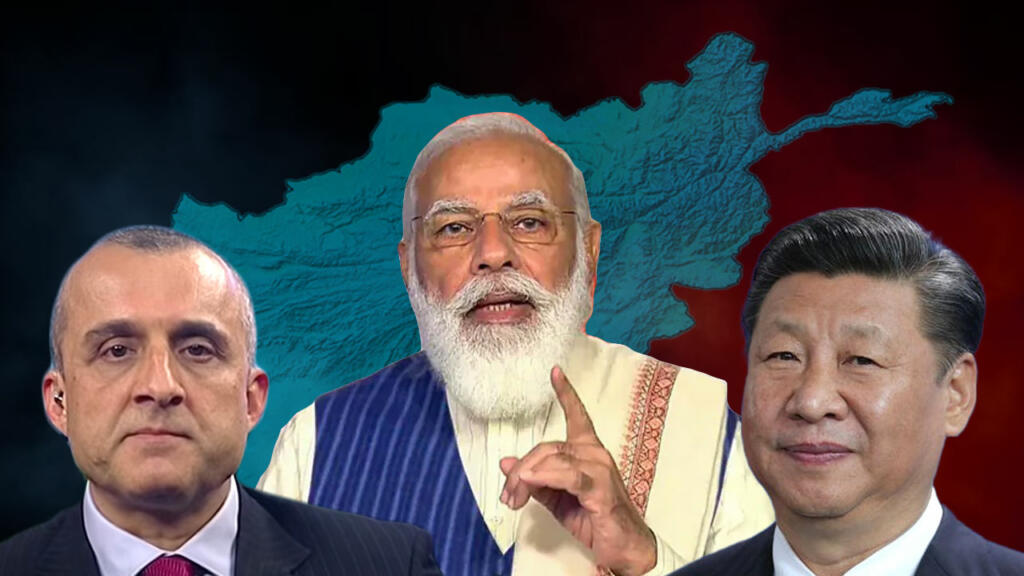It is getting more and more evident that the Taliban is the reality of Afghanistan. With the support of Chinese money, American arsenal, and Pakistan’s army, they are on their way to form a government in Afghanistan. As Shri Atal Bihari Vajpayee Ji once said – ‘You can change your friends, but not neighbours’. It has become imperative for India to deal with the Taliban.
The Indian envoy to Qatar, Deepak Mittal met Sher Mahmood Abbas Stanekzai, the Taliban’s head of political office in Doha. Stanekzai who has graduated from the Indian Military Academy in the 1980s had requested this meeting. The foreign ministry said the two sides discussed the safety of Indians stuck in Afghanistan and Mittal conveyed India’s fears that anti-India forces could utilize Afghan soil for their crooked purposes. In a statement, the foreign ministry said, “The Taliban representative assured the ambassador that these issues would be positively addressed”.
Idealism
India has never provided any semblance of Legitimacy to the Taliban, even during their brutal regime during 1996-2001. In 2021, when the Taliban captured Kabul with the help of Pakistan, India’s efforts to evacuate its citizens were supported by the Taliban. Although, no clear signs regarding Indian engagement or disengagement with the Taliban were given.
Changing landscapes in the region
Chinese Hegemonic attempts
The Taliban has support from both China and Pakistan. Both countries are arch-rivals of India, with China competing for being a world superpower and Pakistan competing for being a regional superpower. The USA evacuated Bagram Air Base leaving $85 billion arms and ammunition on the ground. The Bagram Air Base gets strategically important for China.
As former senior American diplomat, Nikki Haley pointed out, China has a habit of encircling its neighbours through land and sea routes. If it captures Bagram, it will be able to strengthen its position in Asian air space too, and India will be its closest Target. “We need to watch China because I think you are going to see China make a move for Bagram Air Force Base. I think they are also making a move in Afghanistan and trying to use Pakistan to get stronger to go against India,” said Nikki. Recently, Chinese efforts to establish their hegemony got another boost as their activities in northern Sri Lanka are on the rise. After wooing the Sri Lankan government, they are now trying to woo Sri Lankan Tamils.
Russia, Panjshir, and Tajikistan Conundrums
Russia, for a long time, has been a victim of terrorism at the hands of Chechnyan rebels. The Taliban’s emergence in the region will give a boost to the Chechnya’s rebels. As the rebels are predominantly Muslims, the Taliban will certainly provide arms, ammunition, and moral support to them. Similarly, Tajikistan has a long history of problems with the Taliban, and the Taliban’s emergence will transform into radical Islamic factions getting emboldened in the country. It is in the interest of both Russia and Tajikistan to either provide support to the Amrullah Saleh-led army in Panjshir, which is a Tajiks-led region or get Saleh and Taliban on talking terms.
India’s Options
India has two options, follow the idealism, or engage the Taliban through talks and diplomacy. If we dive deep into Russian, Tajik, and Indian interests in the region, there are various benefits of engaging the Taliban through talks. India has great strategic, economic, and political relations with both countries. If the three countries are somehow able to decouple China from Afghanistan and Taliban in the next decade, India can make sure that Afghanistan will not support Pakistan in its Kashmir cause. Pakistani establishment’s renewed focus on Kashmir will mean that Tehrik-i-Taliban which is antithetical to China will create havoc inside Pakistan itself with the help of the Afghan Taliban.
As the saying goes- “Idealism is like a castle in the air if it is not based on a solid foundation of social and political realism”. India should first see what’s on the ground and then act accordingly.
